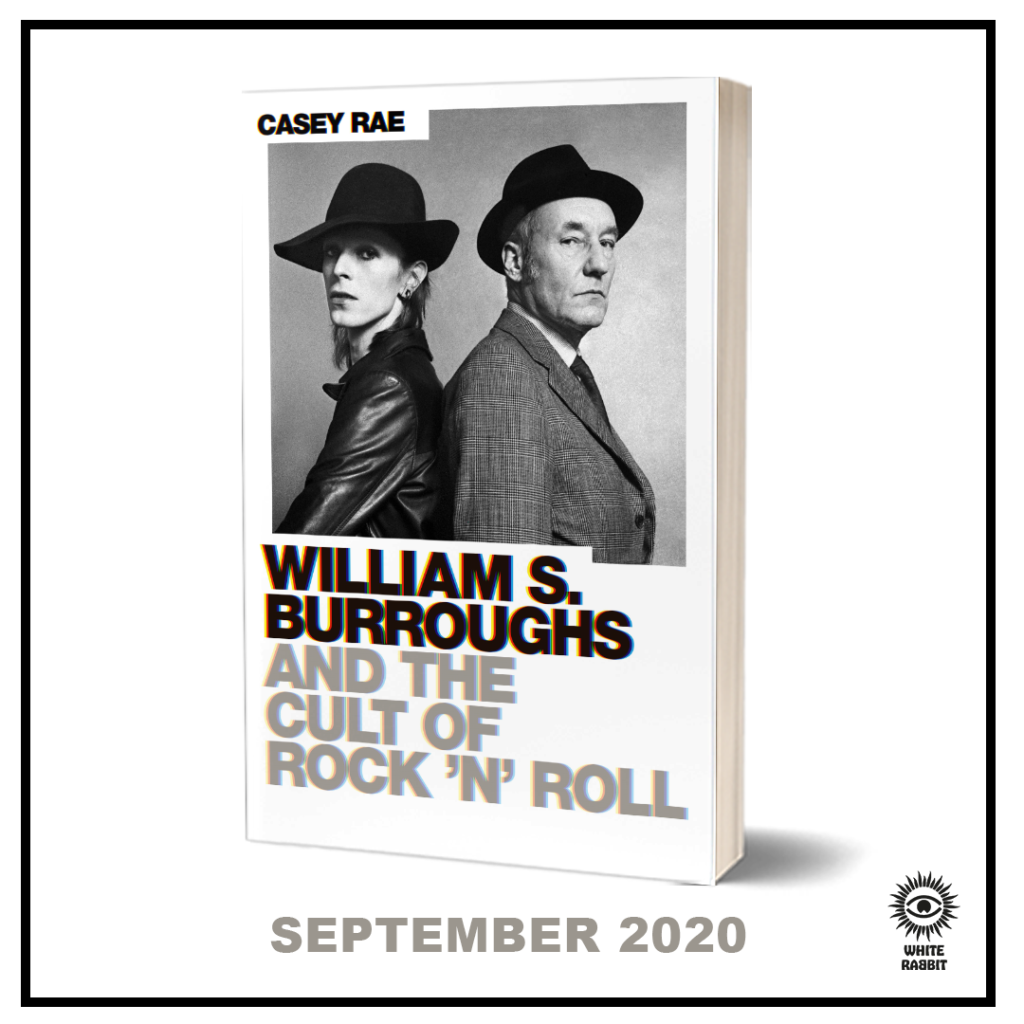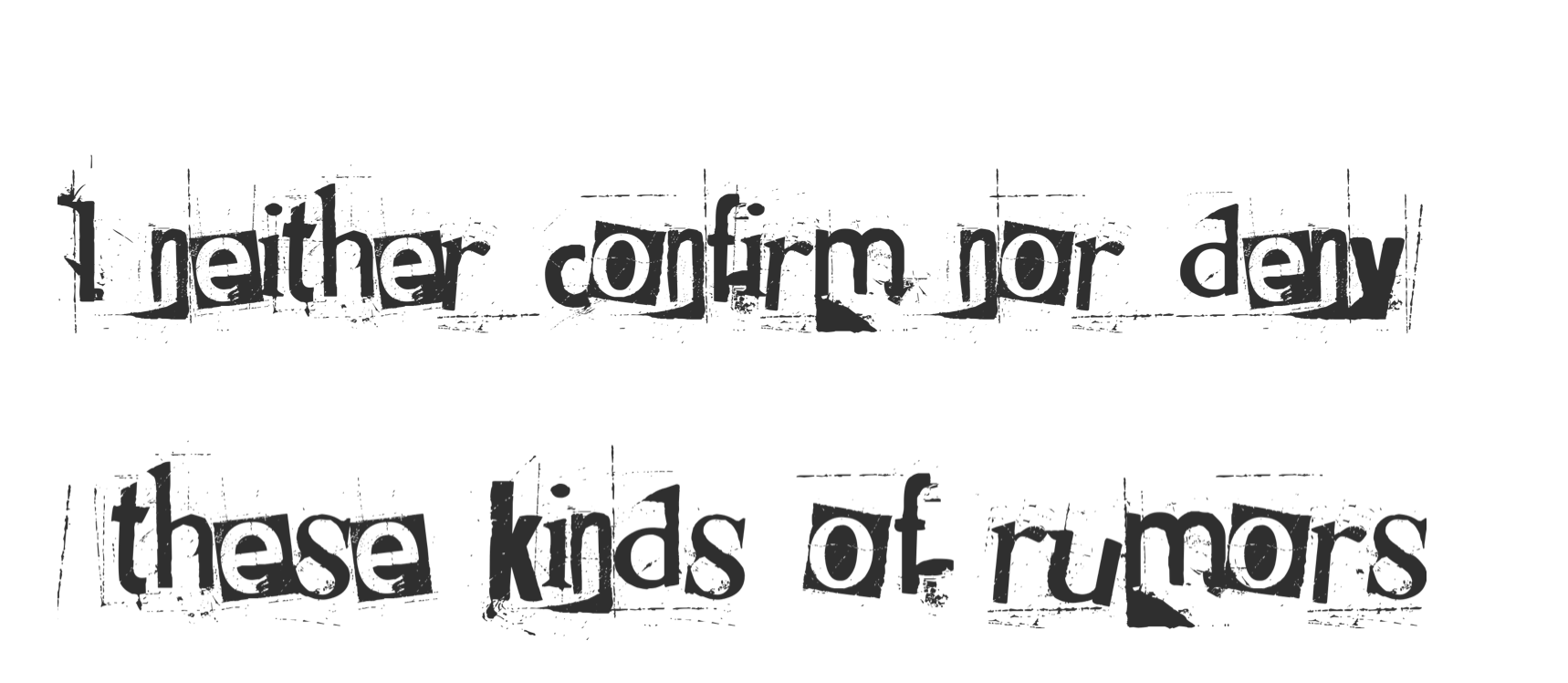Burroughs and Reed had mutual friends, but the two didn’t actually meet face-to-face until 1979. By then Burroughs had become a fixture in Manhattan’s Lower East Side neighborhood. There, in his windowless, three-room apartment at 222 Bowery, he held court among the musicians, intellectuals, writers, and junkies littering the scene like discarded show posters strewn across the sidewalk of nearby nightclub CBGB. Victor Bockris recorded several conversations between Burroughs and his guests during this period, including a meeting with Reed.
In June 1979, Reed was in town promoting The Bells at the nightclub the Bottom Line when Bockris arranged a dinner with Burroughs at the Bunker. Reed’s bassist failed to show up for soundcheck, making him forty-five minutes late for the Burroughs meeting—a major faux pas with the well-mannered author. When the bandmate finally turned up, Reed tore him a new one, after which he, Bockris, and a bottle of scotch were off to the Bunker.
Bockris recalls that “instead of apologizing for his tardy arrival, Lou cast a withering glance around the room, and abruptly asked if there was a chair, or if he was expected to sit on the floor.” Upon being offered a seat, Reed laid in on Burroughs, asking if it was true that he had to sleep with publishers to get his books out, and if he cut off his toe to avoid the draft. (Reed may have misremembered the story of Burroughs slicing his finger in a youthful fit of romantic pique.) Burroughs was not only unruffled, he was amused at Reed’s fireplug personality. “Bill really liked Lou Reed because when I took him to the Bunker, Lou was very witty and he asked pointed questions in just the right way,” Bockris said, adding that Burroughs made a point to note “how sharp he thought Lou was.”
The two discussed how to shoot smack with a safety pin, and the work of John Rechy and Hubert Selby. Reed mellowed somewhat over the course of the conversation, but he still lobbed a few barbs at the man whose writing helped inspire his own career. “There was a quote where someone said about you that you were the only person they ever met who they felt was capable of murder and that you were a very cold person . . . is that true?” Reed asked. “I neither confirm nor deny these kinds of rumors,” Burroughs replied dryly.
In actuality, Burroughs was quite warmly regarded. “Among those who knew him, Burroughs was well liked, loved and respected,”Bockris said. “His original publisher in Paris, Maurice Girodias, told me Burroughs was the kindest and sweetest person he ever met.” Bockris said he had a playful side that would reveal itself in the company of friends: “You could always tell when Bill was really excited because his voice would go up the scale to a high pitched squeak!” On a typical night at the Bunker, “Bill sat at the head of the table. There were always other guests, usually John Giorno and Stewart Meyer would be there when I visited, but there were often others, ranging from Bill’s closest friend Allen Ginsberg and his partner Peter Orlovsky to Debbie Harry and Chris Stein of Blondie to Joe Strummer of the Clash to Jean Michel Basquiat.” Burroughs took it all in like an “adolescent who delighted in the deepest weirdness of human behavior.”
Reed definitely projected deep weirdness, which may be what endeared him to Burroughs. Bockris called their repartee “a hilarious exchange between the Martin and Lewis of the kingdom of junk.” Too bad there was no YouTube back then; just imagine a channel about drugs, literature, and music hosted by William S. Burroughs and Lou Reed.
REED: Why did you use the pen name Bill Lee on Junkie?
BURROUGHS: William Lee.
REED: Oh, yeah. But why?
BURROUGHS: Because my parents were still alive and I didn’t want them to be embarrassed.
REED: But did they read it?
BURROUGHS: Well, they might have.
REED: See, I know you wrote a lot of other books, but I think Junkie is the most important because of the way it says something that hadn’t been said straightforwardly. . . . Is this boring you?
BURROUGHS: Wha?
Reed could not resist asking an impertinent question about Jack Kerouac: “How could a guy that was so good looking and romantic and writing that myth for generations end up being a fat, dumb asshole—if you don’t mind me being crude—sitting in front of television in a t-shirt drinking beer with his mother? What happened to make him change?” Those of lesser manners might have been tempted to point out that Reed himself was presently looking a bit booze-puffed. However, Burroughs took it in stride: “He didn’t change that much, Lou. He was always like that. First there was a young guy sitting in front of television in a t-shirt drinking beer with his mother, then there was an older, fatter person sitting in front of television in a t-shirt drinking beer with his mother.”
Ever competitive, Reed asked Burroughs what he thought about Patti Smith, with whom the author enjoyed an easy rapport. “Well, yes, I’ve always liked what Patti does,” he replied. “I last saw her I think it was out in New Jersey.” Then, quickly pivoting, “Have you ever listened to any Joujouka music?” Reed responded that his only exposure to Joujouka was the Ornette Coleman collaboration, “which I have and play.”
After a half hour, Reed said, “Well, those who play can’t stay,” and it was off to the venue to do the gig. Burroughs stayed behind. As he was getting up to leave, Reed asked, “Would you like to have a quiet dinner so we can talk?” Burroughs said he was game. But they would not see each other again until Burroughs’ seventieth birthday party in 1984. “Was Lou too drunk to remember the meeting?” Bockris asked rhetorically. “I don’t know, he probably imagined they were big friends. In a way they were. Anyway, I put it on my list of Great First Meetings.”
Pre-order William S. Burroughs And The Cult Of Rock ‘N’ Roll by Casey Rae


